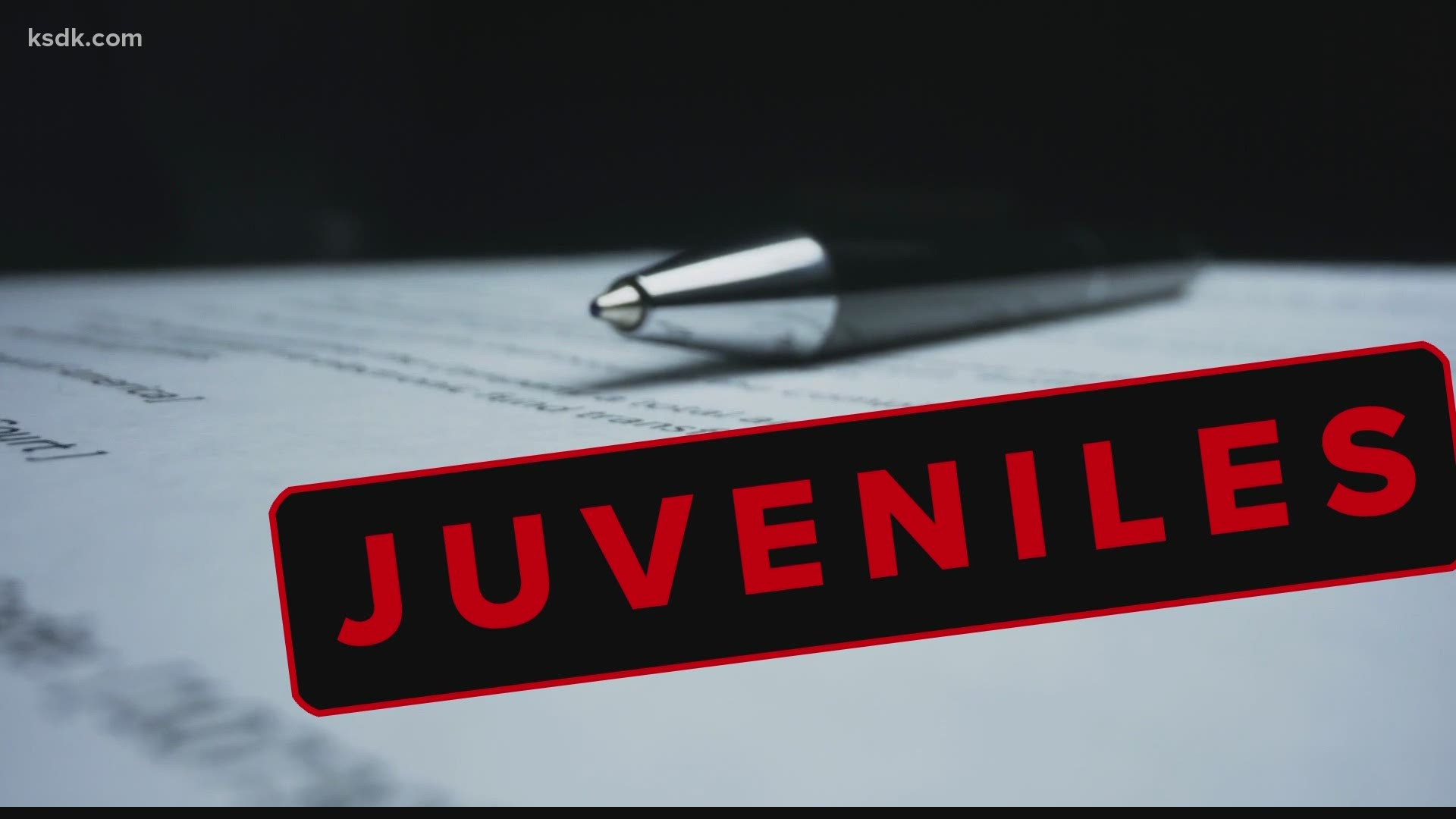ST. LOUIS — For about 36 hours this week, the St. Louis police department tried to do what it could to treat 17-year-olds as children.
A new law known as Raise the Age was supposed to take effect statewide Jan. 1, increasing the age of those eligible for adult charges from 17 to 18.
Only a handful of states still put 17-year-olds in adult criminal justice systems.
In 2018, the Missouri legislature decided this state would join the majority who believe 17 is too young for the adult system.
Too young to start a criminal record that could follow them for their entire lives.
And too young to deprive them of a chance at the state's nationally known Division of Youth Services system and its track record of turning a teen's life around.
I reported this week on how only two prosecutors in Missouri, St. Louis County's Wesley Bell and Jackson County's Jean Peters Baker, are following the law.
Others including St. Charles County's Tim Lohmar say juvenile court systems are refusing to take cases involving 17-year-olds because the state has not given them the money they need to handle an influx of 17-year-olds.
So, if he and other prosecutors didn't charge them, Lohmar says they might not be charged at all.
In a statement, Gov. Mike Parson wrote his office was trying to work with the legislature to fund the mandate.
The issue is not lost on the St. Louis police department's juvenile division.
An internal memo obtained by 5 On Your Side showed the police department’s juvenile commander Lt. Thomas Muldrow told officers just weeks ago the law had changed, but “per the authority of Lt. Col. Ronnie Robinson, until further notice, the SLMPD will continue to take offenders 17 years of age and older to the Justice Center.”
But it appeared on Tuesday the department had changed course as much as it could by initiating a new policy for handling 17-year-olds while they were in policy custody.
If they were still going to be treated as adults by St. Louis Circuit Attorney Kimberly Gardner's office, it appeared the police department wanted to do what it could to treat them as juveniles on their end.
Muldrow wrote: "Per the authority of Lt. Col. Ronnie Robinson, until further notice, once a 17-year-old is taken into custody for a crime, and subsequent questioning is needed, the questioning will be conducted by the police officers in the presence of the Court Deputy Juvenile Officer. The questioning of the 17-year-old will be conducted at Family Courts -- Juvenile Division before conveying the 17-year-old to the Justice Center for booking. The Deputy Juvenile Officer will provide the parent or guardian an opportunity to be present during questioning."
About 36 hours later, Muldrow sent another email ending the practice.
"Effective immediately and per the authority of Lt. Col. Ronnie Robinson, please disregard the previous direction related to the questioning of 17 year olds that are taken into custody. The St. Louis Circuit Attorney's Office advised that all 17-year-olds will be treated as adults during the interviewing and booking processes."
In a statement, Gardner wrote the Raise the Age law did not take effect "due to the conditional language in the legislation."
"The Missouri legislature did not appropriate funds as conditioned in the legislation. These issues are currently being litigated."
But she didn't answer why she ordered police to stop allowing juvenile officers to intervene in cases involving 17-year-olds in their custody.
That's not part of a law.
That's a policy.
Every juvenile advocate and police officer I have ever talked to notes how disproportionately African American teenagers are represented in the juvenile justice system.
Research also shows juveniles are more likely to confess to things they did not do as well as not fully understand their rights. That's why juvenile justice advocates say having a Deputy Juvenile Officer and a parent involved -- as the police department was trying to do -- is a best practice.
The police department's juvenile division is specially trained to deal with a child whose brain is still developing and whose parents might be navigating the system for their child for the first time.
I've interviewed members of the juvenile division through the years for various stories and always come away amazed at how dedicated they are to their jobs knowing they could be the one to change the trajectory of a child's life.
The research showing those who go through the juvenile system are more likely to avoid ever going back to prison as adults.
That's because they are more likely to stop a lifelong cycle of going in and out of prison if they get an early intervention.
So why deprive juvenile officers of interfacing with 17-year-olds while they are in police custody?
Until they are fully embraced by the juvenile system as the legislature said they should be, wouldn't allowing the juvenile system to have at least some interaction with them at the beginning help, at least a little?

